When Britain left the EU at the end of 2020, no reciprocal agreement on driving licences had been reached between Italy and the UK.
Italy however granted UK licence holders with Italian residency a 12-month grace period in which they could continue to drive on their British licences. This was then extended for a further 12 months until the end of 2022.
READ ALSO: Driving licences: Is there any sign the UK and Italy will reach an agreement?
But this temporary reprieve doesn’t resolve the issue of what will happen after this latest extension is up – and the situation is now repeating itself this year.
Many British readers of The Local have been in touch to ask for updates and what would happen should no deal be made, as well as for clarification on other aspects of driving and car ownership as a foreign national living in Italy.
Below are answers to the specific questions readers have asked most frequently about the UK-Italy driving licence agreement and general rules on driving in Italy for British nationals, based on the British and Italian authorities’ current advice.
Q: Have there been any updates on a UK-Italy agreement on driving licences?
A: Not since the new year, when Italy allowed a 12-month extension to the grace period in which British residents could continue to drive on their British licences.
In response to The Local’s most recent request for an update on Wednesday, April 20th, the British Embassy in Rome stated: “The Embassy continues to prioritise the issue of UK driving licence validity in Italy and we continue to engage with the Italian government on this issue.”
The embassy also published a Facebook post acknowledging that “many of you are concerned” about the issue.
“We continue to work at pace to reach a long-term agreement with Italy, so that residents can exchange their UK driving licences without taking a test, as Italian licence holders can in the UK,” the embassy stated.
The Local will continue to ask for updates on the issue.
Q: Will I need to sit an Italian driving test or not?
A: It’s not clear whether this will be necessary, but at the moment it appears to be the course of action recommended by the British government.
Although the embassy’s latest statement says that they are working on a deal so that residents can exchange their UK licences without the need to sit a test, it adds “it is important that you currently consider all your options, which may include looking into taking a driving test now.”
The British government’s ‘Living in Italy’ webpage meanwhile recommends obtaining an Italian driving permit.
“You must exchange your licence for an Italian one by 31 December 2022. You will need to take a driving test (in Italian),” the guidance reads.
“If you need to drive in Italy, you should not wait for negotiations to conclude before exchanging your valid UK licence,” the authorities added.
Q: If I have to sit an Italian driving test, can I do it in English?
A: No. To get your Italian driving licence, you’ll need to sit both the theory and practical exams in Italian.
You can also take the tests in French and German, according to a circular by the Italian Ministry.
Read more about taking your Italian driving test here.
READ ALSO: Getting your Italian driving licence: the language you need to pass your test
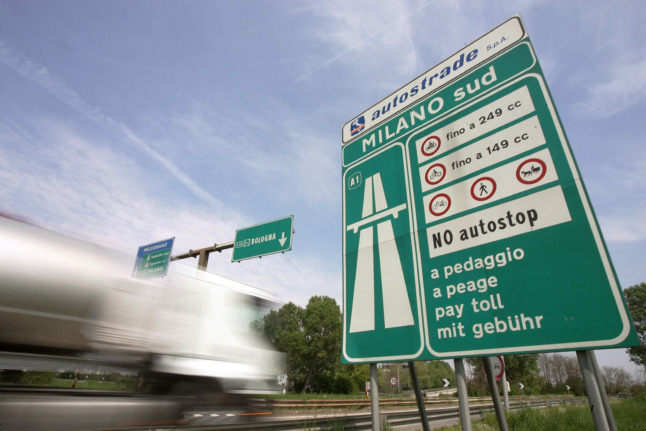
Q: Do I have time to take an Italian driving test if no decision is made until the end of the year?
A: Taking the Italian driving test is known to take months – at least six months is recommended for practicing for the theory tests, taking mandatory driving lessons (even if you already hold a UK driving licence), plus the time to sit the final tests and any re-tests.
If no agreement is reached, it would mean you can no longer drive in Italy from January 1st, 2023 – a huge inconvenience for those who rely on private transport for work or those who live rurally.
READ ALSO: ‘Anyone can do it’: Why passing your Italian driving test isn’t as difficult as it sounds
Therefore, the gamble is whether to start the process of sitting your Italian driving test imminently or hold on for a reciprocal driving licence agreement.
It’s unknown when the authorities will make a decision and whether this will be adequate time to begin taking your Italian driving test. The latest 12-month extension was only announced on December 24th, with just days to go before the same possible scenario.
Q: How long can I drive in Italy on a UK driving licence?
A: The UK government announced on December 24th, 2021 that British residents of Italy who didn’t convert their UK licence to an Italian one could continue to use it until December 31st, 2022.
This only applies to British nationals who got residency before 2022, however.
As things stand, the latest driving guidance on the British government’s ‘Living in Italy’ webpage in January states:
“If you were resident in Italy before 1 January 2022 you can use your valid UK licence until 31 December 2022.”
On the other hand, if you became a resident in Italy this year, you can use your licence for 12 months from the date of becoming a resident. After that, you would need an Italian driving licence to continue driving in Italy.
It is still unclear whether you would benefit from any reciprocal driving agreement, should one be made, or whether this is reserved for those who obtained residency before January 1st, 2022.
Q: I have been living in Italy for years. Can I convert my British licence for an Italian one?
A: No. Just because you’ve been a resident of Italy for many years, doesn’t mean you can still exchange your UK driving licence for an Italian permit.
As noted above, you have a maximum of 12 months from the date of residency to exchange your UK driving licence to an Italian one. Therefore, if you never did so and continue to drive on a British driving licence, you face getting fined should you get stopped by the police.
According to Italy’s Highway Code, article 116 states that fines range from €2,257 to €9,032 for driving on an expired (or invalid) licence. If you’re caught doing it again within a two-year period, there are sanctions of up to one year’s imprisonment.
READ ALSO: ‘Expect the unexpected’: What you need to know about driving in Italy
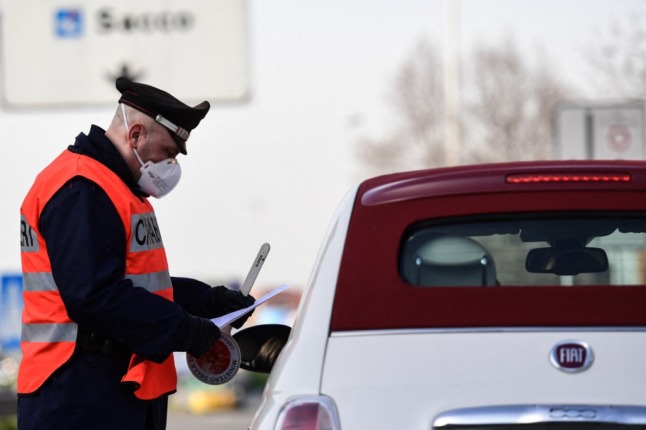
Q: I got my UK licence last year. Is this accepted in Italy?
A: No. Any UK licence issued before January 1st, 2021 will still be accepted on Italy’s roads, as confirmed in a decree issued by the Italian government on December 30th.
That means if you got your UK driving permit in 2021 and are a resident of Italy, it is not valid for driving in Italy.
In addition, it’s worth noting that according to Italian Ministry of Transport guidelines, converting your driving licence without taking the Italian driving exam is allowed only if the foreign driving licence was obtained before taking up residence in Italy.
Q: I started exchanging my licence before January 2021. Would I still need to sit an Italian driving test?
A: Based on a circular from the Italian Ministry of Transport, the UK government states, “If you started exchanging your UK licence before 1 January 2021, you do not need to take a driving test.”
However, if you are still stuck in the bureaucracy of exchanging your UK licence for an Italian permit, it might be difficult to complete the process now. Ensure you have proof of when you started the exchange if you are still trying to convert your UK licence to an Italian one.
Q: If I obtain an Italian driving licence, will I forfeit my UK one?
A: Unlike exchanging your licence, where you surrender your UK licence for an Italian one, if you sit the Italian driving test, you can keep your UK driving licence and hold both permits concurrently.
This is “less certain for those who split their time between the EU and the UK,” according to the UK Parliament, which states that drivers can only hold one licence at a time.
READ ALSO: How do you take your driving test in Italy?
The type of licence you choose to keep is the driver’s decision, “although it may depend on the number of days each year they live in each country,” the guidance reads.
However, remember that if you have residency in Italy, that ultimately makes your decision for you as you can only use your UK licence for 12 months after registering as a resident in Italy.
Q: Do I need an Italian driving permit for short visits to Italy?
A: No. The rules above apply to UK nationals who are resident in Italy only. People visiting Italy for short periods can continue to drive on a UK licence.
You’ll need to carry your UK driving licence with you when driving in Italy for short stays or holidays.
You don’t need an international driving permit (IDP) to visit and drive in the EU and Italy too, therefore.
However, if you hold a paper driving licence or a driving licence from Gibraltar, Jersey, Guernsey or the Isle of Man, you may need an IDP. You can check with the Italian Embassy here.
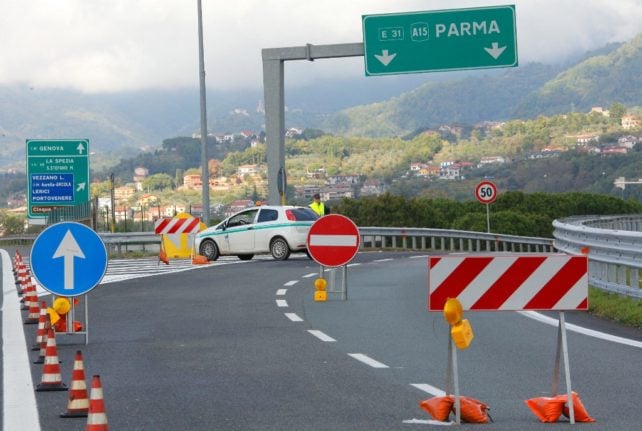
Q: If I get an Italian driving licence, can I drive in the UK with it?
A: Yes, you can use your Italian licence to drive in the UK. Keep an eye on the latest rules of the UK Highway Code here.
To drive in any other country, you may need to apply for an IDP, which you would need in addition to your Italian driving permit.
See here to see if you need one and to apply (in English).
If you leave Italy to return to live in the UK, “you can exchange your Italian licence for a UK one without taking a test,” states the UK government.
Q: Does getting an Italian driving licence change the car I can drive?
A: Yes. You are considered a new driver (neopatente) for three years after getting your Italian driving licence and face certain driving restrictions in that time.
Limitations for novice drivers include tighter speed limits on motorways and main roads, harsher driving penalty points and limits on car engine capacity and power.
This might mean that if you already own a high-powered vehicle, you can no longer drive it once you’ve obtained your new permit.
Q: Can I bring my UK registered car to Italy?
A: Yes. If you do this, you’ll need to register your vehicle and swap your licence plates. Here’s a guide on the latest rules on what you need to do if you move to Italy with your car or motorbike.
Note: there are time limits from the moment you get residency to complete this process.
Q: Can I buy a car in Italy?
The answer depends on your residency status. If you are a resident in Italy, then yes, you can buy a car in Italy.
As a general rule, if you don’t have residency in Italy – even if you own property in Italy or have business interests in the country, you are not legally allowed to buy a car in Italy.
READ ALSO: How you can claim Italy’s auto bonus for a new car
According to the Italian Highway Code, you need to have registered your residency with an Italian municipality to be able to buy a new or used vehicle in Italy.
Have you got any further questions on the UK-Italy driving licence agreement? Let us know in the comments below or contact us with your questions.
Find our latest Brexit-related news updates for UK nationals in Italy here.
Find more information on the UK government website’s Living in Italy section.

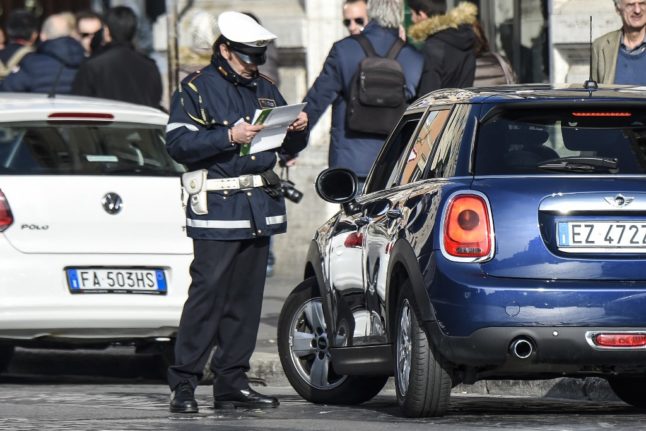
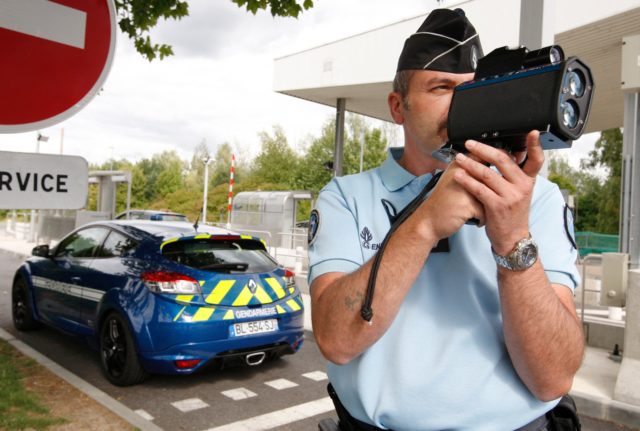
 Please whitelist us to continue reading.
Please whitelist us to continue reading.
This article states “As a general rule, if you don’t have residency in Italy – even if you own property in Italy or have business interests in the country, you are not legally allowed to buy a car in Italy.”
Are there any situations where it would be possible to buy a car in Italy? I am a UK resident and have a property in Italy and a car bought when I was resident some years ago.